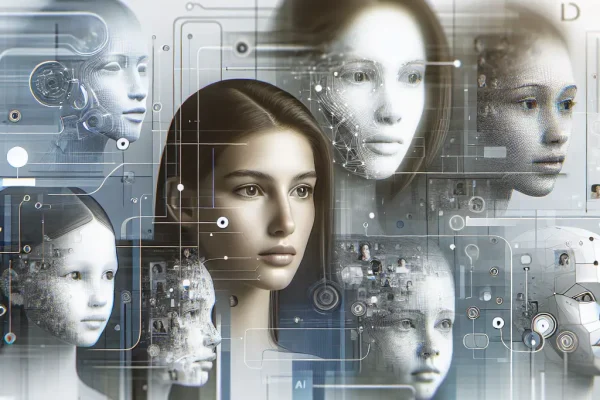Shockwave alert: Although artificial intelligence dominates headlines and boardroom conversations, a stark financial paradox lies at its core: few businesses are actually paying for AI services. Despite eye-popping valuations and game-changing technologies, the revenue streams supporting this global phenomenon are surprisingly thin. According to a Financial Times analysis, most AI companies are struggling to monetize breakthroughs as cost pressures and customer hesitancy mount.
This isn’t just a tech investor’s concern—it’s a looming issue for anyone invested in the future of work, the global economy, and who benefits from and pays for cutting-edge innovation in the AI ecosystem. As development costs soar and sustainable business models remain elusive, the AI trade profitability challenges could signal trouble ahead for the industry—and for the many jobs and communities that depend on it.
The Problem: Are Businesses Really Paying for AI?
The explosion of interest in artificial intelligence since late 2022 has driven unprecedented investment, talent migration, and startup creation. But this feverish adoption masks a harsh reality. Businesses are still not paying for AI services at the scale needed to sustain current growth. As highlighted by the Financial Times (2024), there’s a widespread reluctance among enterprises to commit to ongoing AI contracts—especially for generative AI chatbots, image tools, and analytics services.
- OpenAI’s GPT-4: Offered free to millions as a demo, burning through computing resources while as per Bloomberg (2024), actual enterprise subscription uptake remains low relative to hype.
- AI companies’ revenue models: Many firms deploy “freemium” tactics or provide generous free trials, hoping to upsell premium tiers—but scaling these models to profitability has proven elusive.
- Skyrocketing costs: Model training, compute, energy, and water requirements escalate, but monetization lags behind (Reuters, 2024).
This scenario—rising costs with patchy revenue—forms the heart of the AI trade profitability challenges that now threaten the entire sector.
Why It Matters: Human, Economic, and Environmental Stakes
Why should the average reader or policymaker care? The implications extend far beyond Silicon Valley:
- Jobs & Workforce: If AI business sustainability falters, layoffs could surge—not only among AI engineers, but across IT, data labeling, and adjacent industries.
- Environmental Impact: Massive data centers supporting AI models consume enormous resources. As AI profit models flounder, pressure mounts on water and energy supplies without adequate societal benefit.
- Global Tech Balance: Nations betting on AI supremacy could overheat their economies, risking a boom-and-bust cycle reminiscent of the .com era—”Will the AI bubble burst?” becomes more than clickbait (FT, 2024).
- Innovation Slowdown: If few players survive these profitability hurdles, AI innovation may centralize within a handful of Big Tech incumbents, stifling competition.
Expert Insights & Data: Peering Behind the Hype
Staggering Numbers. Sobering Reality.
“The most advanced AI models cost hundreds of millions in compute and engineering. Yet the path to sustainable revenue is murky at best.” — Financial Times, June 2024
- OpenAI’s investor documents: Reported annual GPT/X model training costs exceed $500 million (Bloomberg, 2024)—with projected revenues far from break-even.
- “Monetization Wall”: Reuters (2024) notes that nearly 80% of top AI startups admit the bulk of their users never pay, despite strong engagement numbers.
- Funding Lifeline: A16z, Sequoia, and SoftBank have poured billions into AI, but venture capital reliance is unsustainable as returns remain delayed.
- AI companies’ revenue models: Few have moved beyond pay-per-seat, API subscription, or upselling bespoke integrations. Many pivot constantly to chase elusive profit.
Industry insiders have started warning: “Are AI firms making money? Not really—not yet.” (FT, 2024). Even major cloud providers (AWS, Azure) discount early-stage AI services heavily to lock in customers—often at a loss.
Future Outlook: Risk or Reset?
Where Is This Headed in 1–5 Years?
As the investor feeding frenzy slows and cost realities bite, the next few years could see:
- Consolidation: Only deep-pocketed giants (Google, Microsoft, Amazon) might survive as standalone AI product leaders. Many startups may disappear or pivot.
- Adoption Squeeze: Businesses will evaluate ROI far more skeptically—especially as mounting SaaS costs and regulatory risks materialize.
- ‘AI Bubble’ Debate: If AI economics explained to the public don’t match sky-high narratives, a confidence crisis or funding “winter” could follow (“Will the AI bubble burst?”).
- Sustainable Revenue: The most adaptive AI companies will experiment with new monetization tactics, multi-modal services, and vertical integrations to increase stickiness and justify recurring payments.
- Regulatory Pressure: Governments may step in to demand transparency around environmental impact, user data use, and competitive fairness.
What Could Save the Sector?
- Breakthroughs in model efficiency (smaller, local AI models) reducing compute costs.
- Enterprise “must-have” applications that create undeniable value—for example, in health diagnostics or supply chain forecasting.
- Clear proof of sustainable ROI convincing laggards to pay up, not just try free demos.
Case Study & Comparison: AI Water Use vs. Bitcoin Energy Use
To illustrate the mounting cost vs. revenue problem, consider this:
| Technology | Main Resource Consumed | Annual Consumption Globally | Revenue Generated |
|---|---|---|---|
| Generative AI (GPT models) | Water for data center cooling | 20-30 billion liters (est.) | $3-4 billion (mostly cloud revenue, not end-user fees) |
| Bitcoin Mining | Electricity (energy) | 110-120 terawatt-hours | $15-20 billion (block rewards & fees) |
Infographic idea: Visual chart comparing AI water use to Bitcoin energy use, mapped against revenue generated per resource consumed.
Related Links: Explore More on This Topic
- [External: MIT: Explaining AI Economics]
- [External: NASA: AI, Energy & Climate Data]
- [External: WSJ: Why Some Firms Aren’t Paying for AI Services]
Frequently Asked Questions (FAQ)
- Are AI firms making money?
- Most AI startups and even giants are struggling to generate significant profits due to high development costs and reluctance from customers to pay. (FT, 2024)
- Why aren’t businesses paying for AI services?
- Many companies see AI tools as experimental or supplementary, relying on free trials. They’re waiting to see clear, measurable ROI before committing to paid plans.
- How are AI startups funded?
- Primarily through venture capital, strategic partnerships, and cloud credit incentives—but this funding model is under growing pressure as exits and profits are delayed. (Reuters, 2024)
- Will the AI bubble burst?
- Experts are divided—there are signs of overvaluation, but sectors with real business value may endure. Sustainability is far from assured.
- What is the future of AI investments?
- If business models mature and costs drop, investment could rebound. Otherwise, a market correction seems likely within 2–3 years.
Conclusion: Will AI’s Profit Crisis Shape the Next Tech Era?
The dazzling promise of artificial intelligence is shadowed by a critical profitability challenge. As companies burn through capital without a clear path to monetization, the sector stands at a crossroads. Will the AI craze follow the path of the early-2000s dot-com bubble, or will adaptive business models and resilient entrepreneurs chart a sustainable future?
As investors, workers, and decision-makers—now is the time to ask: Who’s truly funding the AI revolution—and what happens if the money runs out?


